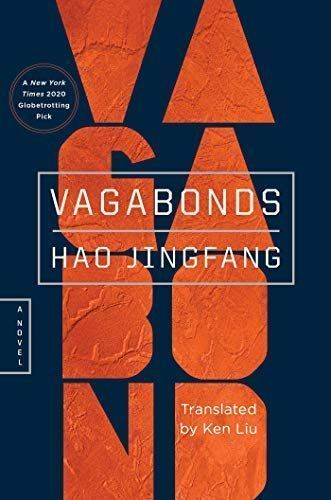
Vagabonds
A century after the Martian war of independence, a group of kids are sent to Earth as delegates from Mars, but when they return home, they are caught between the two worlds, unable to reconcile the beauty and culture of Mars with their experiences on Earth in this spellbinding novel from Hugo Award–winning author Hao Jingfang. This genre-bending novel is set on Earth in the wake of a second civil war…not between two factions in one nation, but two factions in one solar system: Mars and Earth. In an attempt to repair increasing tensions, the colonies of Mars send a group of young people to live on Earth to help reconcile humanity. But the group finds itself with no real home, no friends, and fractured allegiances as they struggle to find a sense of community and identity, trapped between two worlds. Fans of Kazuo Ishiguro’s Never Let Me Go and Naomi Alderman’s The Power will fall in love with this novel about lost innocence, an uncertain future, and never feeling at home, no matter where you are in the universe. Translated by Ken Liu, bestselling author of The Paper Menagerie and translator of Cixin Liu’s The Three-Body Problem, Vagabonds is the first novel from Hao Jingfang, the first Chinese woman to ever win the esteemed Hugo Award.
Reviews
Katie Chua@kchua
Fraser Simons@frasersimons
Ben Nathan@benreadssff
Jess Cheung@xjesscheung
Melissa Railey@melrailey
Mac Navarro@1xmac
Keven Wang@kevenwang
Jackie Luo@jackie